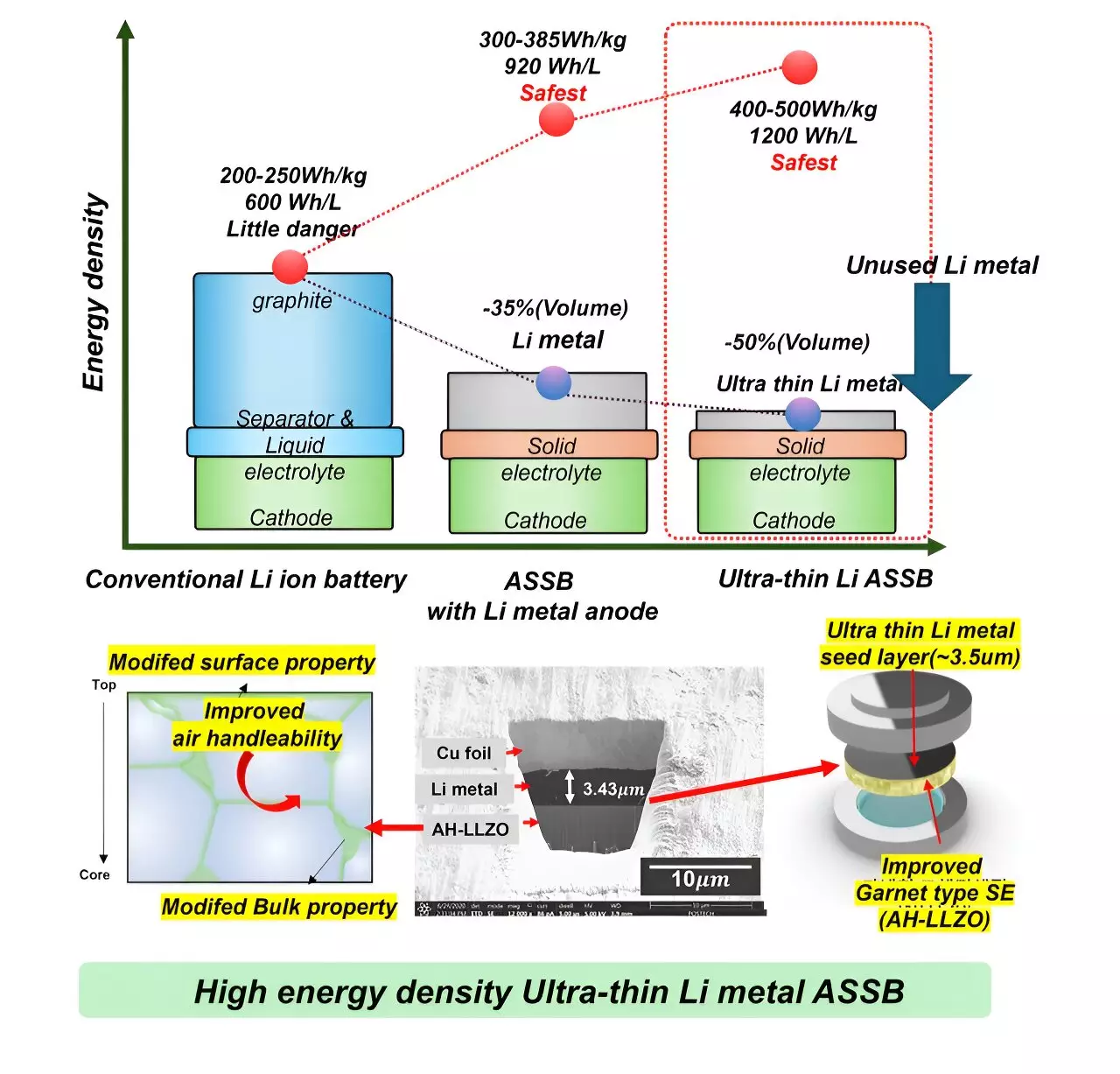Life’s challenges often lead us to seek complex solutions, but sometimes the answers lie in simplicity. This concept was exemplified by a research team at Pohang University of Science and Technology (POSTECH) who tackled the inherent issues of solid-state batteries with a simple yet effective approach.
Solid-state batteries, which utilize solid electrolytes instead of liquids, are considered the future of battery technology due to their enhanced energy density and safety features. However, one of the main challenges with these batteries is the formation of a contamination layer on the surface of the garnet-type oxide solid electrolyte (Li7La3Zr2O12, or LLZO) when exposed to air. This layer hinders the contact and interfacial properties of the electrolyte, especially with the lithium metal anode, leading to decreased performance.
Instead of relying on coatings or additional treatment processes, the research team at POSTECH focused on enhancing the properties of the LLZO itself. By developing an air-handleable LLZO (AH-LLZO) technology, they were able to prevent the formation of the contaminant layer altogether. This technology created a new hydrophobic compound (Li-Al-O) on both the surface and inside the material, inhibiting contamination layer formation and preventing further reaction with moisture in the air.
Advancements in Battery Design
The development of AH-LLZO technology allowed the research team to fabricate ultra-thin lithium solid-state batteries, approximately one-tenth the thickness of a human hair. This innovation significantly reduced the amount of lithium metal used in the batteries, resulting in a lower anode to cathode capacity ratio (~0.176) and thereby decreasing the overall weight and volume of the battery while improving energy density.
Impact and Implications
The ability to prepare ultra-thin lithium metal layers without complex post-processing steps has far-reaching implications for the battery industry. This technology not only simplifies the manufacturing process but also allows for storage in air without the need for special handling or facilities. By addressing the fundamental issues of solid-state batteries, the research team at POSTECH has paved the way for more practical and efficient energy storage solutions.
In a world where complexity is often mistaken for innovation, the research team at POSTECH has shown that the key to solving challenges lies in simplicity. By focusing on the core essence of the problem, they were able to develop a groundbreaking technology that revolutionizes the design and performance of solid-state batteries. This serves as a reminder that sometimes, the most effective solutions are the simplest ones.


Leave a Reply